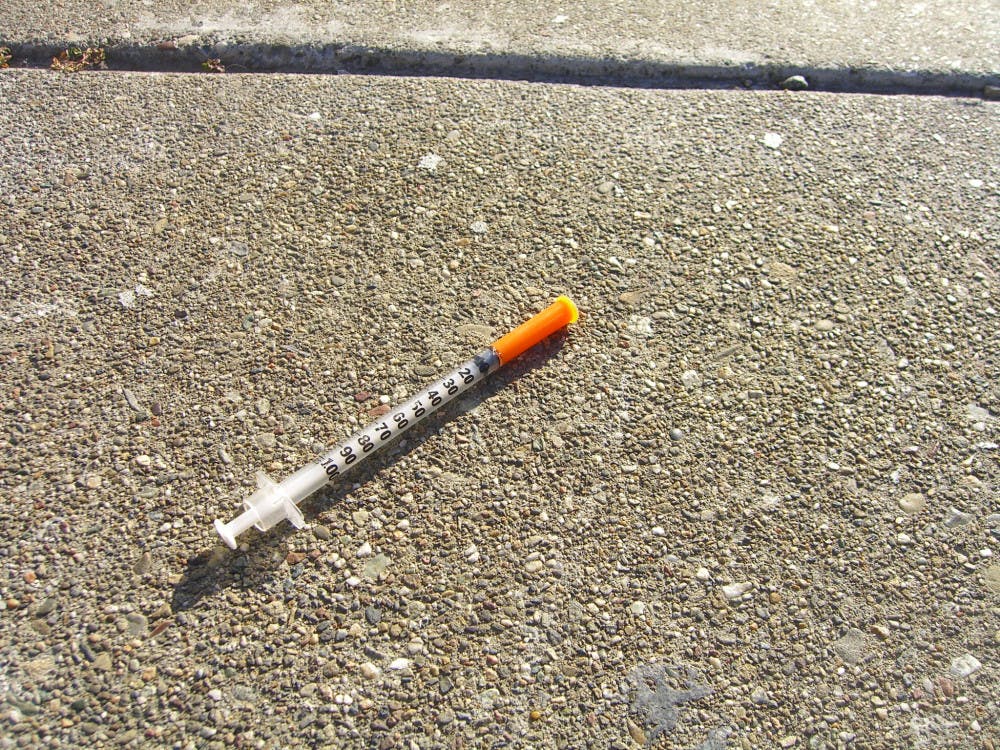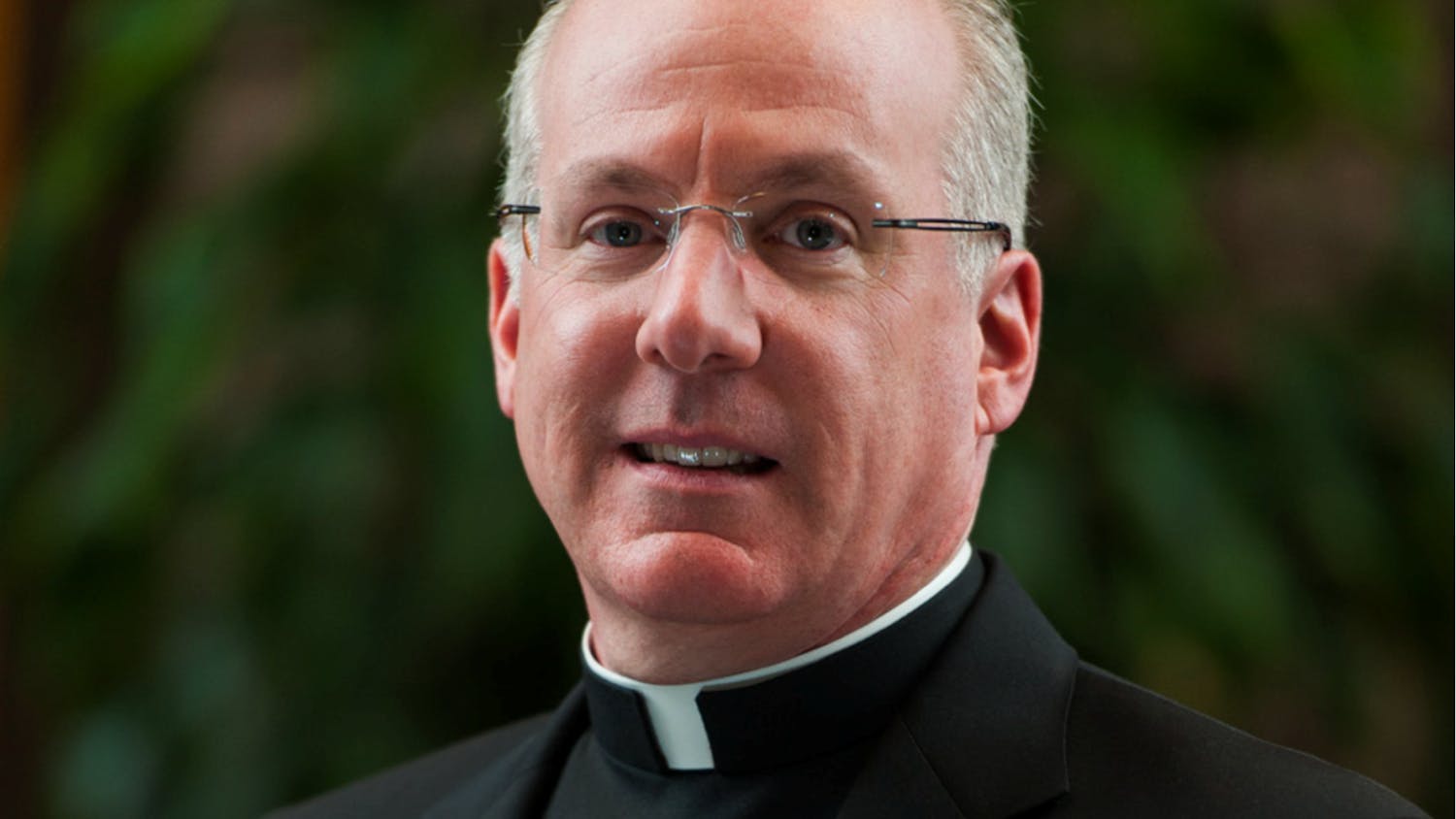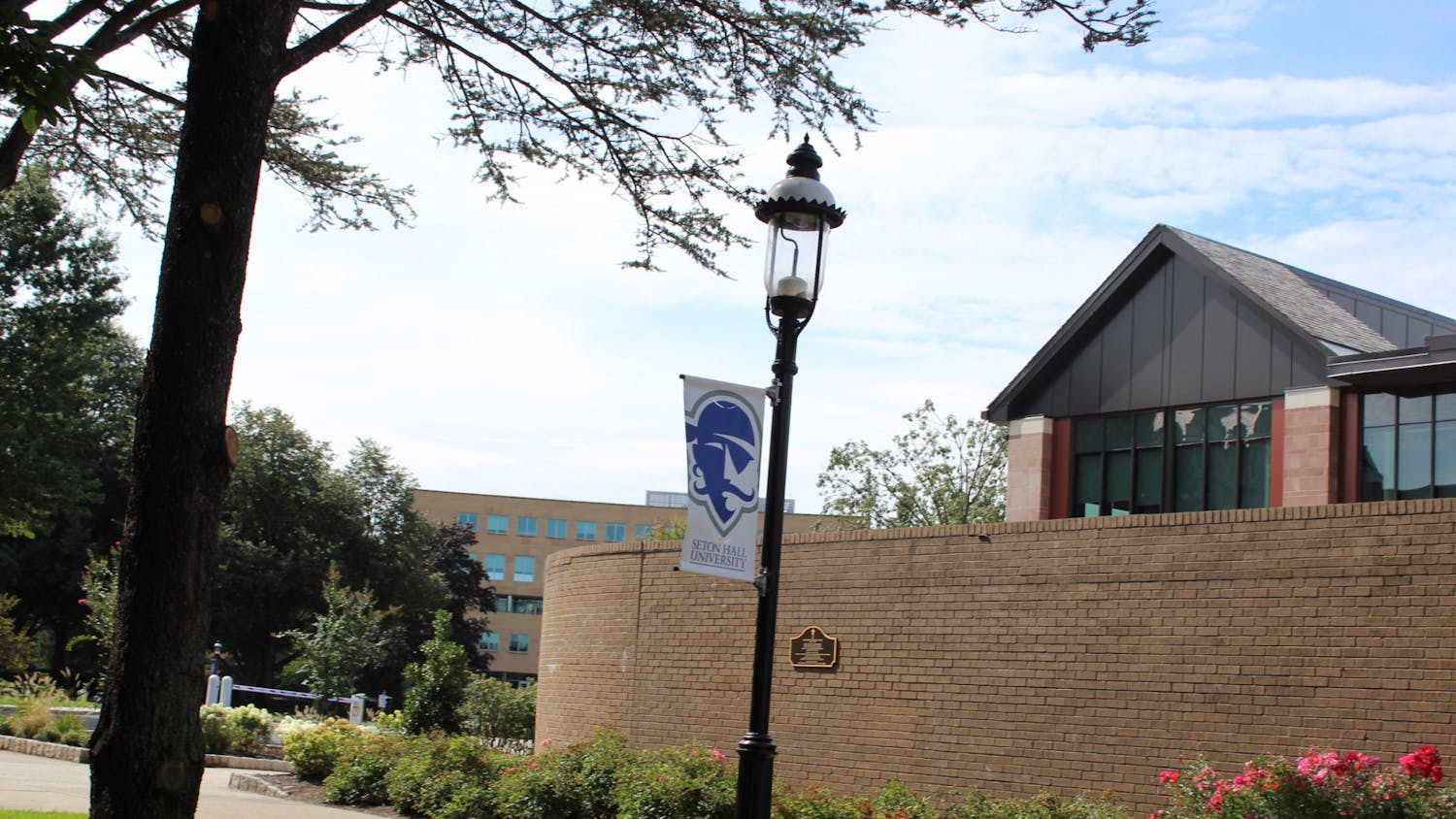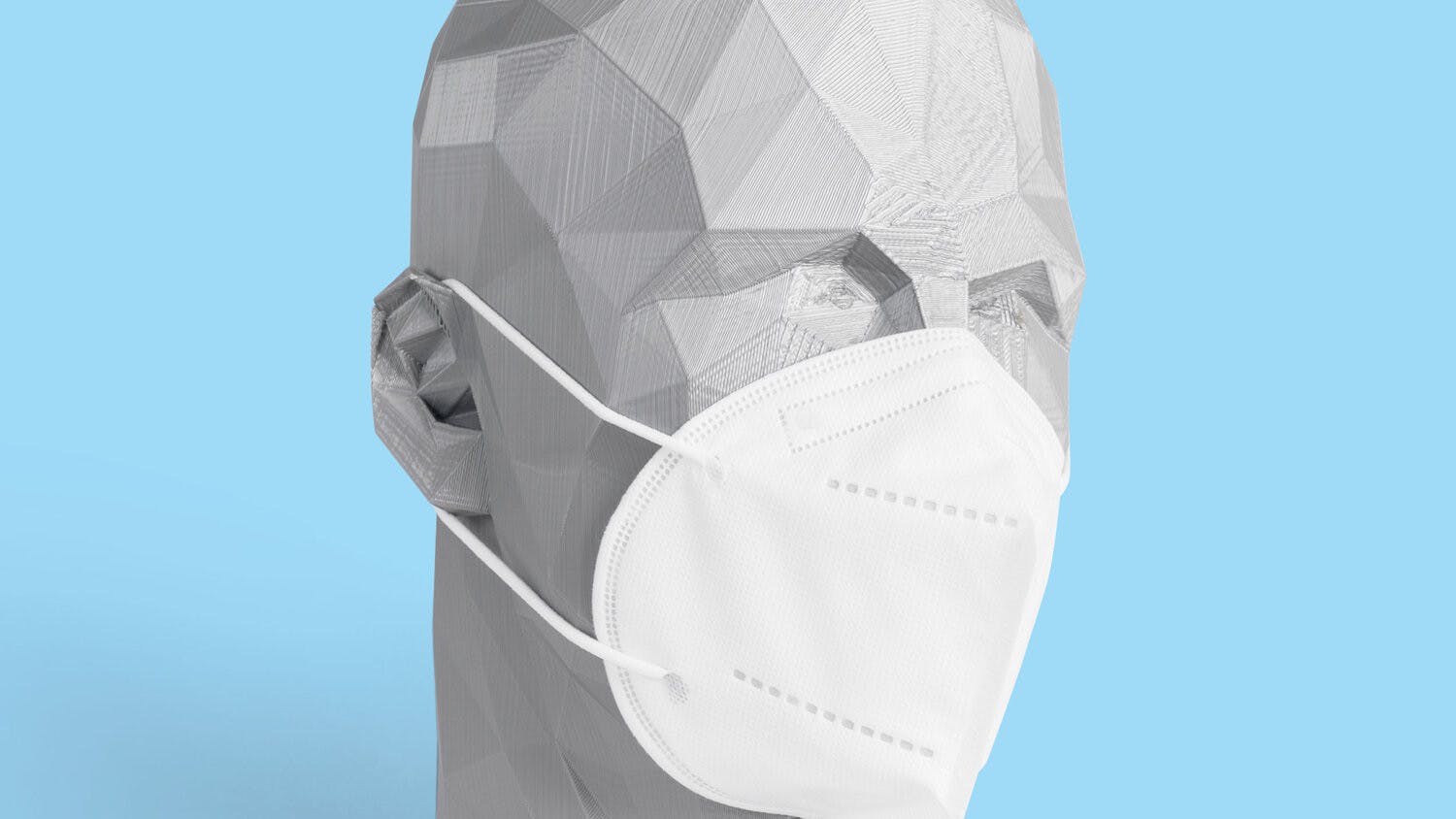[caption id="attachment_15094" align="aligncenter" width="838"] Narcan is the lifesaving drug that reverses the effects of an opioid overdose. Photo via Wikimedia Commons / Eric Molina[/caption]
Narcan, a drug that is becoming increasingly popular among law enforcement to revive overdosed opioid users, may be coming to Seton Hall University soon.
Assistant Vice President for Public Safety and Security Patrick Linfante said he started looking into the possibility of bringing Narcan to campus in January 2016. He is currently waiting for approval from the medical director on campus, Dr. Hugh Snyder.
Linfante said Public Safety’s hope is to have Narcan on campus within the next 30 days. There will be one person in charge to make sure everything is current and to replenish anything that ends up being used.
“Our plan is to put it in all of our mobile units, and as long as there are no objections from Securitas (our security partner) our plan is to also train them to use it,” Linfante said.
The training is not extensive, according to Associate Director of Public Safety Sergio Oliva.
Administering Narcan consists of a 2CC syringe with the fluid, two inserts for each nostril, and one CC per nostril, according to Oliva.
Linfante clarified that Narcan is used on opioid overdoses, which includes drugs like heroin, OxyContin and Oxycodone.
“We haven’t really seen that (opioid drug problem), but we know it’s becoming an increasing problem among the age group that would be our students. And other institutions have seen it,” Linfante said. “We know that we’re not immune to it.”
Oliva said that Linfante is taking a proactive approach to the situation on the chance this drug issue does show up at SHU.
“If you call us or the authorities, even if you are under the influence, and the person you’re with is unconscious, from an overdose, you’re not gonna get in any trouble,” Linfante said. “That’s the law. Police won’t prosecute you.”
However, Linfante said that while Narcan usually works well, it depends on how long the person has been unconscious and the amount of the drug they ingested. If there is an issue, do not hesitate to call for help.
Jessie Plummer, a senior nursing major, said that having Narcan on hand was something that needed to be done.
“Sure there isn’t a problem now but the chances of someone overdosing on campus is higher than ever before,” Plummer said. She related this to not putting locks on doors if there were no previous break-ins.
“I don’t understand the argument ‘if naloxone (Narcan) is available more people will use opioids.’ Typically people that use heroin, or any type of CNS (central nervous system) depressant, don’t overdose for the sole purpose of overdosing,” Plummer said. “There is a deeper underlying issue. We as members in health care have to first save lives then we can crack down on what’s actually causing these issues.”
Kyle Buaya, a sophomore nursing major, agreed that Narcan should be on campus.
“I think it’s a great idea to take precautionary measures and have Narcan on hold now than it is to have an incident happen and not be prepared. Even though opiate abuse isn’t a problem at SHU now, it doesn’t mean it will not be a problem later,” Buaya said.
Alexandra Gale can be reached at alexandra.gale@student.shu.edu.
Narcan is the lifesaving drug that reverses the effects of an opioid overdose. Photo via Wikimedia Commons / Eric Molina[/caption]
Narcan, a drug that is becoming increasingly popular among law enforcement to revive overdosed opioid users, may be coming to Seton Hall University soon.
Assistant Vice President for Public Safety and Security Patrick Linfante said he started looking into the possibility of bringing Narcan to campus in January 2016. He is currently waiting for approval from the medical director on campus, Dr. Hugh Snyder.
Linfante said Public Safety’s hope is to have Narcan on campus within the next 30 days. There will be one person in charge to make sure everything is current and to replenish anything that ends up being used.
“Our plan is to put it in all of our mobile units, and as long as there are no objections from Securitas (our security partner) our plan is to also train them to use it,” Linfante said.
The training is not extensive, according to Associate Director of Public Safety Sergio Oliva.
Administering Narcan consists of a 2CC syringe with the fluid, two inserts for each nostril, and one CC per nostril, according to Oliva.
Linfante clarified that Narcan is used on opioid overdoses, which includes drugs like heroin, OxyContin and Oxycodone.
“We haven’t really seen that (opioid drug problem), but we know it’s becoming an increasing problem among the age group that would be our students. And other institutions have seen it,” Linfante said. “We know that we’re not immune to it.”
Oliva said that Linfante is taking a proactive approach to the situation on the chance this drug issue does show up at SHU.
“If you call us or the authorities, even if you are under the influence, and the person you’re with is unconscious, from an overdose, you’re not gonna get in any trouble,” Linfante said. “That’s the law. Police won’t prosecute you.”
However, Linfante said that while Narcan usually works well, it depends on how long the person has been unconscious and the amount of the drug they ingested. If there is an issue, do not hesitate to call for help.
Jessie Plummer, a senior nursing major, said that having Narcan on hand was something that needed to be done.
“Sure there isn’t a problem now but the chances of someone overdosing on campus is higher than ever before,” Plummer said. She related this to not putting locks on doors if there were no previous break-ins.
“I don’t understand the argument ‘if naloxone (Narcan) is available more people will use opioids.’ Typically people that use heroin, or any type of CNS (central nervous system) depressant, don’t overdose for the sole purpose of overdosing,” Plummer said. “There is a deeper underlying issue. We as members in health care have to first save lives then we can crack down on what’s actually causing these issues.”
Kyle Buaya, a sophomore nursing major, agreed that Narcan should be on campus.
“I think it’s a great idea to take precautionary measures and have Narcan on hold now than it is to have an incident happen and not be prepared. Even though opiate abuse isn’t a problem at SHU now, it doesn’t mean it will not be a problem later,” Buaya said.
Alexandra Gale can be reached at alexandra.gale@student.shu.edu.





